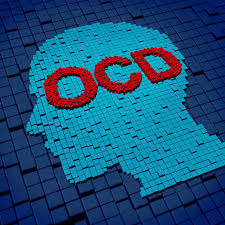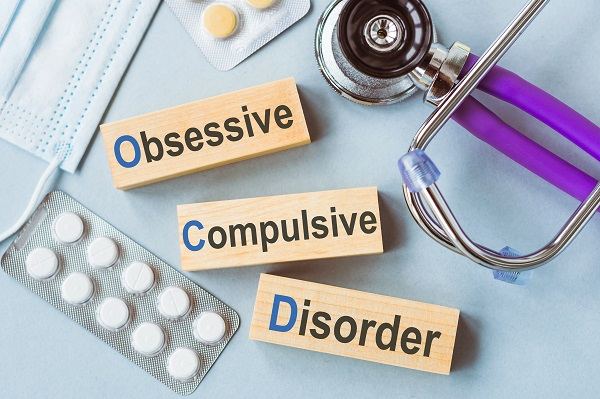Do you constantly worry about your health? Are you always checking to make sure that you are not sick or injured? If so, you may be suffering from health OCD. Health OCD, also known as hypochondria, is a type of anxiety disorder that causes people to obsess over their health. They become convinced that they are sick or injured, even when there is no evidence to support this belief. If you are struggling with health OCD, it is important to get help. In this blog post, we will discuss the signs, symptoms, and treatment of health OCD.
Contents
What Is Health OCD Treatment?

An SSRI can improve OCD symptoms by increasing the levels of a chemical called serotonin in your brain. It may take 12 weeks for you to notice any improvement from taking an SSRI.
Health OCD is a form of Obsessive Compulsive Disorder (OCD) that involves an individual obsessing over their health and potential illnesses. These obsessions can take many forms, from worrying about having a serious illness to believing that every symptom they experience indicates something is wrong with them. People with Health OCD are often preoccupied with how their body is functioning and how it appears, leading them to constantly seek reassurance from doctors or loved ones.
Cognitive Behavioral Therapy (CBT) is a recommended treatment for Health OCD. CBT helps patients learn more effective ways of thinking and behaving by identifying self-destructive patterns and replacing them with healthier behaviors. During therapy, patients learn to recognize and challenge their irrational thoughts, as well as work on relaxation techniques such as deep breathing and visualization.
With the right treatment and lifestyle changes, it is possible for people with Health OCD to lead a more fulfilling life free from obsessive thoughts and behaviors. Although recovery takes time, it is worth the effort if you are committed to freeing yourself from your obsessions. So if you or someone you know are struggling with Health OCD, there is hope and help available. Seek professional help to begin your journey toward recovery.
Signs And Symptoms
There are various signs and symptoms pf health OCD . They are:
Fear of contamination
This is a fear of objects, situations, or people that may be contaminated with germs or other hazardous substances. People with health OCD are often excessively concerned about the possible risks associated with any contact or interaction with contaminants and germs.
Health anxiety
People with health OCD experience persistent worries about their health. They might be overly concerned about minor physical symptoms or feel anxiety about possible illnesses and diseases.
Checking behaviors
People with health OCD may obsessively check their body for unusual signs of illness, such as lumps or bumps, changes in skin color, or any other worrisome symptom. Additionally, they might also excessively research medical conditions and treatments online.
Compulsions
People with health OCD may engage in obsessive behaviors, such as repeatedly washing their hands or cleaning objects around them to reduce the perceived risk of contamination. They might also compulsively look for reassurance from family members or medical professionals that nothing is wrong.
Avoidance
People with health OCD may avoid certain places or situations that they believe could increase their risk of becoming ill, such as crowded areas, public restrooms, or contact with people who are sick.
Intrusive thoughts
People with health OCD might experience intrusive thoughts about the possibility of being seriously ill or having a serious medical condition. These thoughts may be accompanied by feelings of fear or panic.
Perfectionism
People with health OCD may become perfectionists when it comes to taking care of their own health, exercising excessively or following a strict diet in order to reduce the risk of illness or disease.
Fatigue
Health OCD can be mentally and physically exhausting, leading to feelings of fatigue and exhaustion.
Low self-esteem
People with health OCD may also experience low self-esteem due to the fear of becoming ill or the belief that they should have done more to prevent illness. This can lead to feelings of guilt or shame.
Sleep problems
Health OCD can interfere with a person’s ability to get restful sleep, as intrusive thoughts or worries may make it difficult to relax.
Depression and anxiety
People with health OCD may also experience symptoms of depression and anxiety due to their obsessive worries about health and illness.
Social isolation
The fear of becoming ill or the need to constantly check symptoms may lead to social isolation, as people might avoid certain situations or activities in order to reduce their risk of illness.
Suicidal ideation
In severe cases, health OCD can lead to suicidal thoughts or attempts. If these occur, it is important to seek help immediately from a mental health professional.
Panic attacks
People with health OCD may also experience panic attacks due to the fear of becoming ill or dying from a serious medical condition. These panic attacks can be intense and overwhelming, causing physical symptoms such as sweating, heart palpitations, and difficulty breathing.
It is important to remember that everyone experiences anxiety differently, and the severity of someone’s health OCD will vary based on individual circumstances. If you think that you or someone you know may be struggling with health OCD, it is important to seek help from a qualified mental health professional. With the right treatment, recovery is possible.
Is Health OCD a thing?
Health Anxiety OCD may make people afraid that an unidentified or untreated illness will rob them of a fulfilling life, but then they miss out on enjoying the life they dreamed about by devoting all their attention to avoiding illness.
People with Health OCD often experience obsessions or compulsions related to the fear of contamination or the fear that something is wrong with their health. Common obsessions include fear of having cancer, HIV, or another terminal illness, and worrying that minor symptoms are signs of a serious medical condition. Compulsions often involve excessive checking of symptoms, research into potential illnesses, and endless doctor’s visits to find reassurance that all is well.
Health OCD is a serious and potentially disabling disorder. It can be very distressing for sufferers, as their fear of the unknown is often stronger than any logical thinking. Health OCD can have a major impact on daily life, disrupting routines and relationships by making it difficult to focus on anything except obsessive thoughts and worries about health.
Research shows that the most effective treatments for Health OCD involve CBT and ERP techniques. Through these treatments, sufferers learn to recognize their intrusive thoughts and replace them with more balanced thoughts. In addition, they learn to confront their fears in a safe and controlled environment, allowing them to gradually let go of the irrational beliefs that fuel their obsessions.
If you feel like you may be suffering from Health OCD, it is important to seek professional help as soon as possible. An experienced mental health professional can help you identify and address the root causes of your anxiety to create a personalized treatment plan that is tailored to your specific needs. With the right support and guidance, you can take back control of your life and start living it to its fullest potential.
Is Health Anxiety a Form of OCD?
Health anxiety, sometimes referred to as hypochondria, is a mental disorder characterized by excessive and persistent worry about one’s health and the possibility of developing a physical illness. People with health anxiety obsessively check their bodies for signs of illness and become convinced they have or will develop serious illnesses even in the absence of any evidence that this may be true.
Like OCD, people with health anxiety often develop intrusive thoughts and behaviors that are difficult to control. They may go to excessive lengths to monitor their bodies for signs of illness, repeatedly check medical information, or even seek unnecessary medical tests and treatments. They may also become preoccupied with the fear of developing serious illnesses, such as cancer, and excessively ruminate on health-related topics.
Health anxiety often has a significant impact on quality of life, as it can lead to difficulty functioning in work or social situations due to persistent worry about one’s health. It is important to note that health anxiety is a distinct disorder from OCD, although it may co-occur with OCD and other mental illnesses you think you may be suffering from either health anxiety or OCD, it is important to seek professional help from a mental health professional. With the right treatment, you can work toward reducing your symptoms and improving your overall quality of life.
Can Health Anxiety Be Treated?
Yes, health anxiety can be treated and managed. Treatment options for health anxiety may include cognitive-behavioral therapy (CBT), medications, lifestyle changes, or a combination of these treatments.
- CBT is one of the most common treatments for health anxiety and involves talking to a mental health professional about your worries, learning techniques to challenge your thoughts, and developing skills to better manage your anxiety.
- Medications such as antidepressants or anti-anxiety drugs may also be prescribed to help reduce symptoms of health anxiety. However, it is important to note that medications should only be used in conjunction with other treatments such as CBT for the best results.
- Finally, lifestyle changes such as exercise, proper sleep hygiene, and reducing stress can help to reduce symptoms of health anxiety. Additionally, talking to friends and family or joining a support group may be beneficial in managing the condition.
Overall, health anxiety is treatable and manageable with the right treatment plan tailored to meet your individual needs. If you think you may be suffering from health anxiety, it is important to speak with your doctor or a mental health professional for a proper diagnosis and treatment plan.
Conclusion
It may be concluded that health OCD treatment is an important part of managing the condition and improving overall well-being. There is no one-size-fits-all approach to treating health OCD, but patients should work with their healthcare provider to find the best treatment plan for them. Cognitive behavioral therapy, medication and lifestyle changes can all be effective ways of helping manage symptoms and reduce stress related to health OCD. With proper treatment and support, it is possible for those with health OCD to live a full and healthy life.
By understanding the causes of health OCD and exploring different treatments, patients can take control over their condition and improve their quality of life. Healthcare providers should work to create individualized treatment plans that have both short-term and long-term goals in order to ensure the best possible outcome for each patient.
For more information and guidance, please contact OCDMantra. If you have any queries regarding OCD treatment, ERP therapy experienced therapists at OCDMantra can help: Book a trial OCD therapy session


